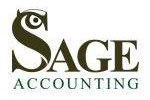Still time to roll over FHL gains
The abolition of the furnished holiday lettings (FHL) regime hits on 6 April 2025. However, this isn’t necessarily the end of all the associated tax breaks. How and when can you use rollover relief to save capital gains tax from FHLs?

End of an era
Many landlords are selling up in response to the demise of the furnished holiday lettings (FHL) regime on 5 April 2025. If you let holiday accommodation and decide to continue, you’ll be exposed to the general restriction on tax relief for interest and other finance costs you incur that are related to your letting. You’ll also face higher capital gains tax (CGT) bills if and when you sell the property.
Sell and roll over
So-called rollover relief allows you to avoid any CGT that would otherwise be payable when you sell an FHL property and reinvest the proceeds into a qualifying replacement asset. The replacement asset can be acquired up to three years after (or twelve months before) the sale of your FHL property. The replacement asset doesn’t have to be another property. It can be any qualifying asset.
Limitations on relief
Full rollover relief applies if you reinvest all the proceeds from selling your FHL but is restricted if you reinvest less. This partial relief also applies where the property didn’t qualify as an FHL for every tax year you owned it.
A property, which in recent times has not been let, will still qualify for partial rollover relief assuming it has been an FHL at some point during your ownership.
Application to FHLs
Gains made on an FHL sale or transfer before 6 April 2025 can be rolled into other qualifying assets, including properties which are available as an FHL from their acquisition in 2024/25.
You can make a provisional claim for rollover relief on your tax return even if you haven’t acquired the replacement property. You’ll have to certify that the disposal was undertaken for commercial purposes if completion is after 5 April.
2024/25 FHLs
If you have already wound down your business, this doesn’t mean 2024/25 isn’t a qualifying year for FHL purposes. Two elections may come to the rescue in the form of the period of grace election and averaging election. You have until 31 January 2026 to submit these to HMRC.
Example. Ann’s property qualified as an FHL in 2022/23. She can make a period of grace election for 2023/24 and 2024/25 as long as she intended to meet the FHL conditions in those years, which maintains the FHL’s trading status for rollover purposes.
If you started letting holiday accommodation during 2024/25, it will qualify as an FHL if it meets the qualifying conditions for the first twelve months of letting even where this falls partly after 5 April 2025.
Related Topics
-
Get ready for Making Tax Digital for Income Tax
If you’re one of the (un)lucky individuals who need to join Making Tax Digital for Income Tax (MTD IT) from 6 April 2026, you probably know that this involves submitting regular, digital records to HMRC. But what do you need to do to prepare?
-
CT61
-
Repayment thresholds for student finance confirmed
Repaying student finance can seem complicated, with a number of different plan types each having different repayment thresholds. The thresholds for the forthcoming year have just been confirmed. What’s the full story?

 This website uses both its own and third-party cookies to analyze our services and navigation on our website in order to improve its contents (analytical purposes: measure visits and sources of web traffic). The legal basis is the consent of the user, except in the case of basic cookies, which are essential to navigate this website.
This website uses both its own and third-party cookies to analyze our services and navigation on our website in order to improve its contents (analytical purposes: measure visits and sources of web traffic). The legal basis is the consent of the user, except in the case of basic cookies, which are essential to navigate this website.